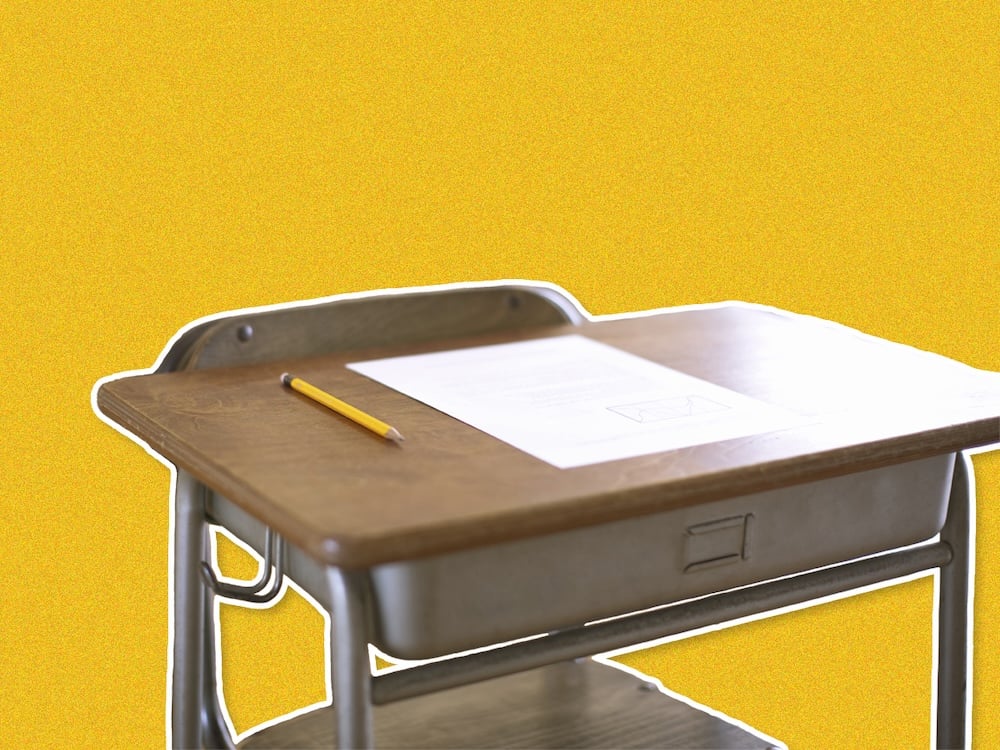Education
Academic Kelly Gallagher-Mackay Addresses Canadian Education Challenges

Amid ongoing debates surrounding public education, academic Kelly Gallagher-Mackay has shed light on critical issues such as student absences, race-based data, and the role of private schools in Canada. In a recent interview, she outlined the existential questions currently facing the education system, particularly in provinces like Ontario.
Gallagher-Mackay, a recognized expert in educational policy, emphasizes the importance of understanding the diverse factors influencing student attendance. Recent statistics indicate that absenteeism rates have risen, raising concerns among educators and policymakers alike. The implications of these trends are profound, affecting not only individual students but also the broader educational landscape.
Understanding the Impact of Absenteeism
The increase in student absences has sparked significant discussion about the underlying causes. Gallagher-Mackay points to various factors, including socioeconomic status and mental health challenges. In Ontario, for instance, the number of students missing school has seen a sharp rise, with some reports indicating that as many as 30% of students were absent at least once during the academic year.
This issue is compounded by the impact of the COVID-19 pandemic, which has led to disruptions in learning and heightened anxiety among students. Gallagher-Mackay stresses that addressing absenteeism requires a multifaceted approach, involving parents, educators, and support services to create a supportive environment for students.
The Role of Race-Based Data
Race-based data collection has emerged as a crucial tool in understanding educational disparities. Gallagher-Mackay argues that disaggregating data by race can provide valuable insights into how different communities are affected by systemic issues in education. For example, Indigenous and Black students often face unique challenges that can contribute to higher rates of absenteeism.
According to the Ontario Human Rights Commission, this data can inform targeted interventions and policies aimed at closing the achievement gap. Gallagher-Mackay advocates for a comprehensive approach to data collection that respects privacy while enabling educators to make informed decisions.
Private Schools and Public Education
Another contentious topic is the increasing prevalence of private schools and their impact on public education. Gallagher-Mackay notes that the rise of private institutions has led to concerns about equity and access within the education system. Many families are opting for private education, often citing better resources and smaller class sizes as key factors.
This trend raises questions about the sustainability of public schools, which must compete for funding and enrollment. Gallagher-Mackay believes that maintaining a robust public education system is essential for fostering an equitable society, urging policymakers to prioritize resources for public schools.
In summary, Gallagher-Mackay’s insights highlight the pressing challenges within Canada’s education system. By addressing absenteeism, leveraging race-based data, and understanding the implications of private schooling, stakeholders can work toward creating a more inclusive and effective educational environment for all students. As the landscape continues to evolve, the focus must remain on ensuring that every child has access to quality education, regardless of their background.
-

 Science3 months ago
Science3 months agoToyoake City Proposes Daily Two-Hour Smartphone Use Limit
-

 Top Stories3 months ago
Top Stories3 months agoPedestrian Fatally Injured in Esquimalt Collision on August 14
-

 Health3 months ago
Health3 months agoB.C. Review Reveals Urgent Need for Rare-Disease Drug Reforms
-

 Technology3 months ago
Technology3 months agoDark Adventure Game “Bye Sweet Carole” Set for October Release
-

 World3 months ago
World3 months agoJimmy Lai’s Defense Challenges Charges Under National Security Law
-

 Lifestyle3 months ago
Lifestyle3 months agoVictoria’s Pop-Up Shop Shines Light on B.C.’s Wolf Cull
-

 Technology3 months ago
Technology3 months agoKonami Revives Iconic Metal Gear Solid Delta Ahead of Release
-

 Technology3 months ago
Technology3 months agoApple Expands Self-Service Repair Program to Canada
-

 Technology3 months ago
Technology3 months agoSnapmaker U1 Color 3D Printer Redefines Speed and Sustainability
-

 Technology3 months ago
Technology3 months agoAION Folding Knife: Redefining EDC Design with Premium Materials
-

 Business3 months ago
Business3 months agoGordon Murray Automotive Unveils S1 LM and Le Mans GTR at Monterey
-

 Technology3 months ago
Technology3 months agoSolve Today’s Wordle Challenge: Hints and Answer for August 19









